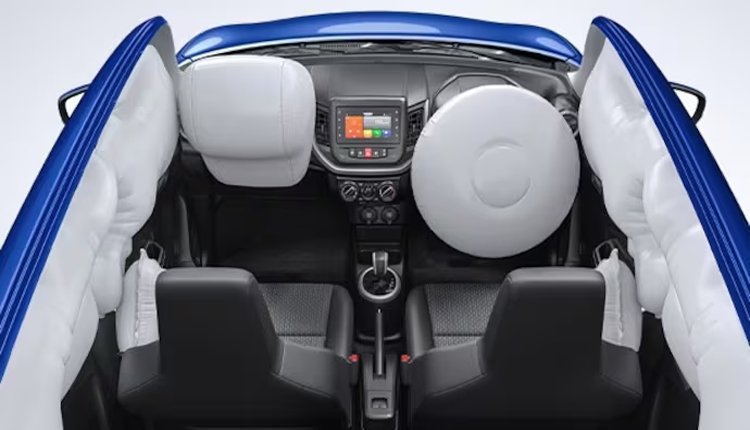Mumbai: Maruti Suzuki, the leading carmaker in India, has taken a bold step towards increased safety for its range of small cars. This is done by making six airbags standard across select models, including the popular Alto K10, WagonR, Celerio, and Eco. This announcement, which took place on Monday, also includes a suite of five essential safety features aimed at protecting both drivers and passengers on India’s increasingly busy roads. Maruti is demonstrating its commitment to affordable safety in the compact car segment, as evidenced by the slight price increase reflecting these upgrades.
Spanning across Maruti’s popular Arena models sold through mass-market dealerships, the move takes into account India’s changing road environment with developing high-speed motorways and more traffic congestion. Maruti Suzuki Senior Executive Officer, Marketing and Sales, Partho Banerjee, said, “Our roads are changing rapidly, and safety expectations are evolving along with them. Hope that it provides drivers with best-in-class protection by offering six airbags as standard equipment in the Wagon R, Alto K10, Celerio, and Eco. This entails the addition of dual front, side, and curtain airbags and is offered at a price hike of up to ₹32,500 (depending on the model and variant).
In addition to airbags, Maruti has made five vital safety features standard across these models – an anti-lock braking system (ABS) with electronic brake force distribution (EBD), electronic stability control (ESC), three-point seatbelts for all occupants, rear parking sensors and seatbelt reminders for front seats. The WagonR, India’s best-selling car of FY25 with close to 200,000 units sold, also features a three-point rear central seatbelt which replaces the lap belt type unit used before. A favourite for families and commercial use, the Eeco has been updated for a safer six-seat configuration (it was a seven-seater) with forward-facing captain seats and hooks to keep luggage secured.
This newfound push by Maruti for safety is definitely a continuation but at a faster pace. In a similar vein, the Celerio gained six airbags earlier in February 2025, causing prices to rise to between ₹5.64 lakh and ₹7.37 lakh (ex-showroom), while boot space was reduced by 21 litres, and kerb weight received a 10kg increase. In March, the Alto K10 – which is a household name that has sold over 46 lakh units since its launch in 2000 – was also given a similar price hike, with costs increasing up by as much as ₹16,000. In April, Maruti also added six airbags to the Eeco and WagonR. This furthers its plan – as confirmed by Chairman R.C. Bhargava – to offer six airbags across its models by 2025.
This change comes as Maruti previously stated that adding six airbags to low-cost vehicles was of concern for them when the Indian government suggested in 2022 that it be made mandatory for upcoming vehicles. With consumer demand for safer cars picking up, along with competition like Tata with the Tiago and Hyundai with the Exter, which both now offer six airbags, Maruti is responding. In 2024, the new Dire finally raised the bar with a five-star Global NCAP rating. However, the models were deemed far safer – but not bulletproof, with low-performing one- and two-star ratings for the WagonR and Alto K10, respectively – so naturally, hopes are held out that these upgrades will result in better crash-test performances.
These changes should offer more peace of mind to millions of Indian drivers, especially first-time buyers — 74 per cent of all Alto K10 customers fall into the latter category. They also contribute equally to passenger safety when it comes to services such as ride-hailing, where Eeco and WagonR dominate. With its constant pouring in of these upgrades to models like the S-Presso and Ignis, the price hikes are slightly significant; however, it is part of a greater mission to bring safety to all cars, regardless of how low-budget, in saving lives on India’s unpredictable roads.



Comments are closed.